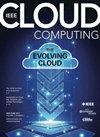构建基于黄金信号的日志异常检测签名
Q1 Computer Science
引用次数: 3
摘要
随着越来越多的组织迁移到云,运营团队面临的主要挑战是如何有效地使用来自多个数据源(如日志、度量和跟踪)的大量信息,以帮助维护云服务的健壮性和可用性。站点可靠性工程师(Site Reliability Engineers, SRE)依靠定期的日志数据来了解应用程序的状态,并诊断问题的潜在根源。尽管有最佳实践,服务中断还是会发生,并导致数十亿美元的收入损失。很多时候,这些中断的指示器隐藏在SRE接收到的大量警报中。因此,减少嘈杂的警报是很重要的,这样SRE才能专注于关键的事情。日志异常检测检测系统异常行为,发现数据中不符合预期行为的模式(异常)。不同的异常检测技术已经被纳入到各种AIOps平台中,但它们都存在大量的误报。此外,有些异常是短暂的,可以自行解决。在本文中,我们提出了一种基于黄金信号签名的无监督模型无关的持久异常检测器,作为检测到的异常的后处理过滤步骤,因此我们不必干扰系统中现有部署的异常检测器。本文章由计算机程序翻译,如有差异,请以英文原文为准。
Building Golden Signal Based Signatures for Log Anomaly Detection
As an increasing number of organizations migrate to the cloud, the main challenge before an operations team is how to effectively use an overwhelming amount of information derivable from multiple data sources like logs, metrics, and traces to help maintain the robustness and availability of cloud services. Site Reliability Engineers (SRE) depend on periodic log data to understand the state of an application and to diagnose the potential root cause of a problem. Despite best practices, service outages happen and result in the loss of billions of dollars in revenue. Many a times, indicators of these outages are buried in the flood of alerts which an SRE receives. Therefore, it is important to reduce noisy alerts so that an SRE can focus on what is critical. Log Anomaly Detection detects anomalous system behaviours and finds patterns (anomalies) in data that do not conform to expected behaviour. Different anomaly detection techniques have been incorporated into various AIOps platforms, but they all suffer from a large number of false positives. Also, some anomalies are transient and resolve on their own. In this paper, we propose an unsupervised model-agnostic persistent anomaly detector based on golden signal based signatures, as a post-processing filtering step on detected anomalies, so we don’t have to interfere with the existing deployed anomaly detector in a system.
求助全文
通过发布文献求助,成功后即可免费获取论文全文。
去求助
来源期刊

IEEE Cloud Computing
Computer Science-Computer Networks and Communications
CiteScore
11.20
自引率
0.00%
发文量
0
期刊介绍:
Cessation.
IEEE Cloud Computing is committed to the timely publication of peer-reviewed articles that provide innovative research ideas, applications results, and case studies in all areas of cloud computing. Topics relating to novel theory, algorithms, performance analyses and applications of techniques are covered. More specifically: Cloud software, Cloud security, Trade-offs between privacy and utility of cloud, Cloud in the business environment, Cloud economics, Cloud governance, Migrating to the cloud, Cloud standards, Development tools, Backup and recovery, Interoperability, Applications management, Data analytics, Communications protocols, Mobile cloud, Private clouds, Liability issues for data loss on clouds, Data integration, Big data, Cloud education, Cloud skill sets, Cloud energy consumption, The architecture of cloud computing, Applications in commerce, education, and industry, Infrastructure as a Service (IaaS), Platform as a Service (PaaS), Software as a Service (SaaS), Business Process as a Service (BPaaS)
 求助内容:
求助内容: 应助结果提醒方式:
应助结果提醒方式:


